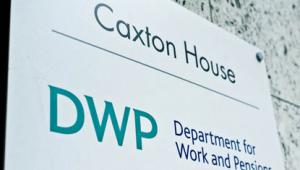HMRC’s accounts have been qualified on this basis in every year since tax credits were introduced in 2003/04.
The agency’s central estimate of fraud and error in 2013/14, the most recent available, was £1.26bn in overpayments (4.4% of total entitlements) and £0.18bn in underpayments (0.6% of entitlements).
Although the department has reduced fraud and error from 8.1% in 2010/11, and it now stands at the lowest level since tax credits were introduced, the qualifications remained.
Auditors said the decline suggested HMRC’s initiatives to tackle specific fraud and error risks have had an impact, including working with credit reference agencies to increase the number of checks.
“The reduction is encouraging, and HMRC will conduct further analysis to understand fully the reasons for all of the reductions,” the report stated.
An HMRC spokesman told Public Finance the department had got fraud and error to its lowest-ever level, and that the qualification was a consequence of when the agency took over tax credits.
Auditors also revealed that HMRC had received £517.7bn in total tax revenue in 2014/15, £11.9bn (2.4 %) more than the previous year. VAT contributed most to this increase (£5.7bn) followed by higher income tax and national insurance contributions £2.3bn.
The department also reduced the amount of tax written off because there was no practical way to collect them to £4.2bn, taking it below £5bn for the first time in many years.
Morse said that over the last parliament, HMRC had met its strategic objectives to increase tax revenue while cutting its administrative costs. “HMRC is one of the strongest government departments for managerial competence but it will need to rise to the significant challenges ahead,” he added.
“It has ambitious plans to modernise tax administration in the coming five years but these carry substantial risks - in particular, as it introduces new digital services whilst replacing its Aspire contract for IT services, and faces the challenge of making further reductions in fraud and error on tax credits alongside managing the transition to Universal Credit.”
The comptroller and auditor general also qualified the 2014/15 accounts of the Ministry of Defence because it did not comply with International Financial Reporting Standards for determining whether a contract contains a lease that provides the department with exclusive or near-exclusive use of assets and capability.
The NAO’s report noted, however, that department has made some progress in quantifying the impact of not applying this standard, which has been a qualification for six years running.
The auditor general also qualified the accounts of the Department for Work and Pensions earlier this week.




















